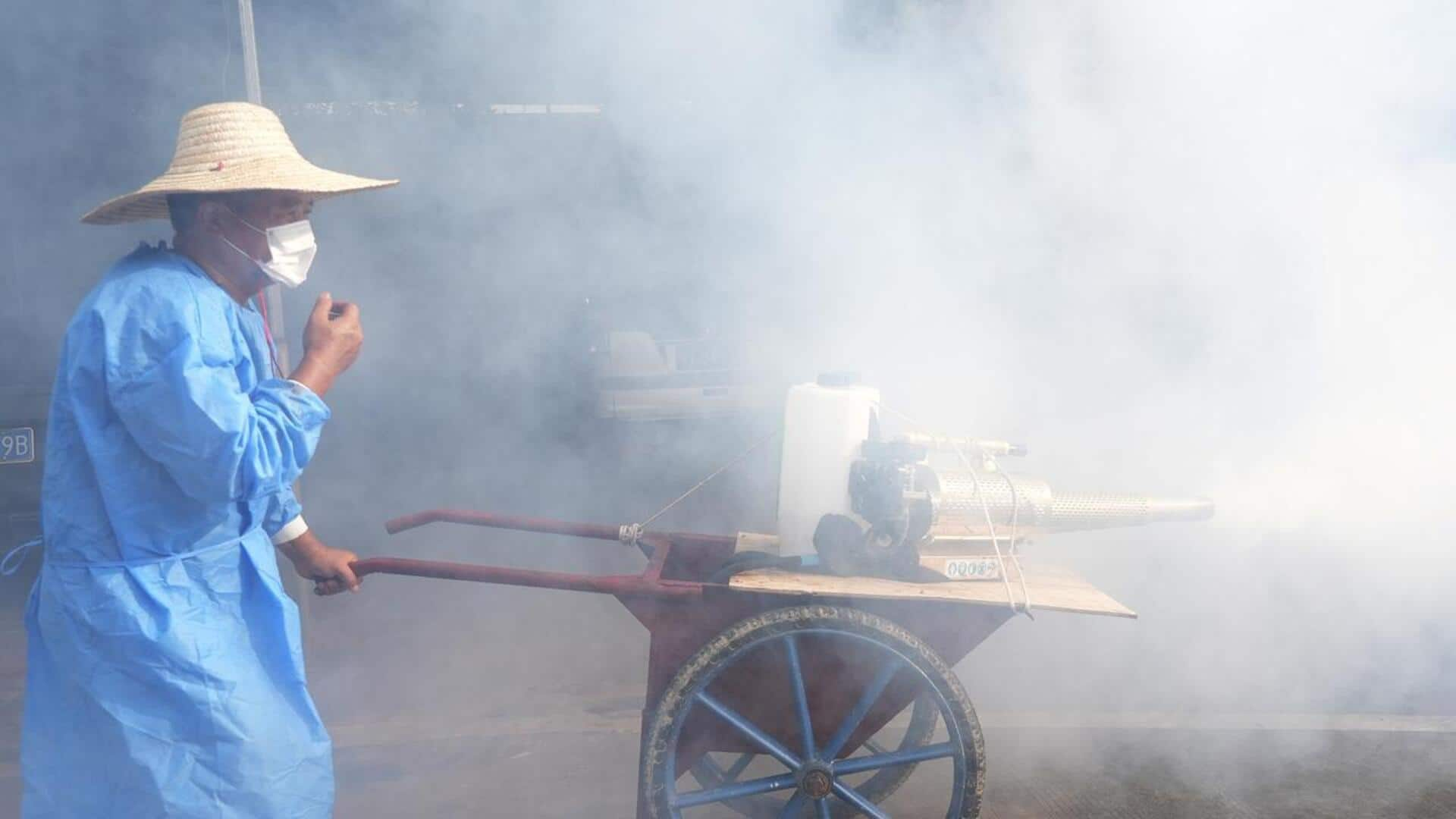
China's efforts to control Chikungunya virus trigger rights infringement debate
What's the story
The Chinese government's efforts to control the spread of the Chikungunya virus have sparked fears of personal rights violations. This concern has been fueled after a recent incident in Zhanjiang. A single mother had shared a video on social media this week of a group of individuals, including a uniformed police officer, entering her children's bedroom in the middle of the night. They extracted blood samples from the boy and girl without their mother's knowledge or agreement.
Public reaction
Mosquito control measures infringe on personal rights
The family was reported by a local pharmacy after the son showed symptoms of fever. The hashtag related to this incident has garnered nearly 90 million views on Weibo, with many users expressing alarm over the authorities' actions. The outbreak started in Foshan, a city in Guangdong province, about a month ago, with around 8,000 reported cases. The disease is transmitted through mosquito bites and causes fever, muscle pain, and nausea, among other symptoms.
Official response
Authorities mandate pharmacies to report certain drug sales
In response to the outbreak, Guangdong Governor Wang Weizhong announced measures on August 2. These include eliminating mosquito breeding sites and encouraging public participation in mosquito control efforts. However, some of these measures have revived surveillance practices reminiscent of China's strict COVID-19 controls. On August 4, Foshan authorities mandated pharmacies to report sales of certain fever treatment drugs, which appears to be how the Zhanjiang children were identified.
Ongoing investigation
Local health authorities launch investigation into the incident
Chikungunya outbreaks are common in Asia, Africa, and the Americas, but this is the first time a large-scale outbreak has occurred in China. After the public outcry over the Zhanjiang incident, local health authorities have launched an investigation. They have confirmed attempts to contact the mother involved in the case.